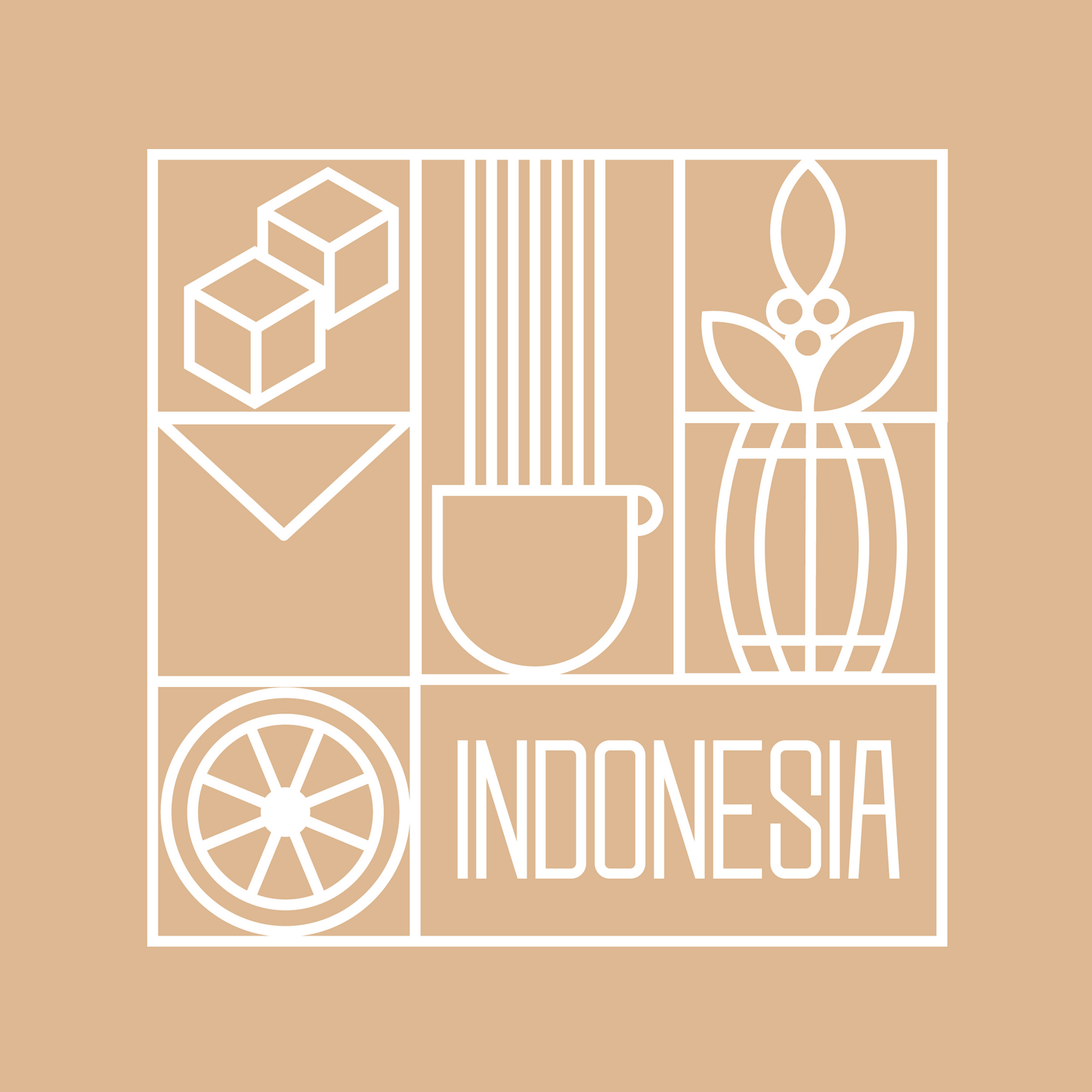MERAKI Artisan Coffee
Indonesia Situbondo اندونيسيا سيتوبندو
Indonesia Situbondo اندونيسيا سيتوبندو
Couldn't load pickup availability
Net Weight 250g الوزن الصافي ٢٥٠ جرام
Tutti-frutti | Pineapple | Pear
Farm: Pokmas Walida
Varietal: Arabica Lini S795 and Kartika
Processing: Anaerobic Natural
Altitude: 1,200 to 1,400 meters above sea level
Owner: 200 smallholder producers
Region: East Java
Country: Indonesia
الإيحاءات: توتي فروتي | أناناس | كمّثرة
المزرعة: باكماس واليدا
السلالة: ارابيكا لينا S795 و كارتيكا
المعالجة: تجفيف لاهوائي
الارتفاع: أعلى من 1200 متر فوق سطح البحر
المزارع: مزارعين متعددين
المنطقة: شرق جافا
البلد: اندونيسيا
Story Behind This Coffee
Situated along the slopes of the Argopuro Volcano, is a region in East Java known for its coffee production thanks to the rich volcanic soil and high elevations. The iconic volcano creates the beautiful Javanase landscape in the Situbondo Regency. When coffee was first cultivated in Indonesia, it was common for Dutch colonists to plant low-quality Robusta in large estates. However, the 21st century ignited a shift towards Arabica, especially in East Java, whereby more microlots appeared, owned by producers experimenting with new, innovative processing methods.
This lot is one such example of this coffee-quality revolution in Indonesia. Producer and cooperative leader, Pak Muhlisin, founded the Pokmas Walida Cooperative in 2014, to gather producers in the area and spread awareness about new processing methods to improve quality. Muhlisin was born and raised in the Tlogosari village, nestled at the foothills of the Argopuro volcano and studied agricultural science and farming techniques at the Brawijaya University in the city of Malang. His passion for agriculture grew as he studied, pushing him to attend IPB (Institut Pertanian Bogor) / Bogor Farming Institute to undertake a more intensive training in coffee production.
Muhlisin then returned home to begin growing his own coffee in 2012 with the methods and tools he acquired during his education. However, coffee prices were low at the time, forcing other producers to rely on other crops. Pak, on the other hand, sought to obtain higher prices for the producers in this region. This required him to venture into larger cities such as Jakarta, to locate markets he could sell to in order to optimize the potential of the coffee from Argopuro.
Over time, Muhlisin created relationships with various roasters in Jakarta, willing to pay higher prices for coffee from this pristine region of East Java. As his income began to increase, other producers followed suit, planting newer varietals, and practicing different processing methods.
In addition to coffee, producers in this area will also grow tobacco, tea, sengon, and fruit trees such as mango and guava whilst also raising cattle to diversify income. Today, there are roughly 200 producers associated with the cooperative with farms ranging in size from 0.5 hectare to 0.75 hectare.
During the harvest, each producer will carefully handpick the cherries and transport to the collection station adjacent to the Pokmas Walida wet mill. Here, the cherries are submerged in water to remove any floaters to maintain quality. Once sorted, the coffee is then placed into large tanks of water and covered for 72 hours to initiate fermentation. This breaks down the exterior mucilage helping to create a unique tasting profile. When fermentation is complete, the cherries are evenly dispersed on covered raised beds to dry for 15 days and moved to tarped patios to dry for another 10 days. The cherries are regularly moved to prevent mould growth. Once the ideal water content level is reached, the coffee is ready for hulling. The dried cherries are moved via truck to the dry mill, 50 miles away, to be hulled and set to rest prior to export.
A main initiative for this cooperative and for Muhlisin is to expand education to community members. There are goals in place to construct and improve the K-12 school system for the locals. 20% of coffee sales from the cooperative are set aside for this project to cultivate a future of educated coffee producers. Currently, he works with his uncle to run the school and ensure the children have a comfortable place to learn. Thanks to the previous years of selling coffee, he has been able to renovate various parts of the school, including a new coat of paint on the external walls. Plans for dormitories are in the works.
Something special and unique about Muhlisin is that he is quite a young coffee producer, and he has introduced some uncommon processing methods to this region of Indonesia. He has inspired other producers to follow suit, and his coffee is sought after throughout Indonesia by local roasters. He previously grew tobacco, but it proved to be too dangerous and difficult to grow with the high demand of agrochemicals and working with large companies. Coffee has proven to be a more profitable and safer option for him and his friends who contribute cherry to his mill.
Muhlisin and the producers associated with the Pokmas Walida Cooperative are supported by Belift, a coalition of coffee professionals seeking to improve the income of producers in Indonesia. The group is comprised of three young men, originally from Indonesia, who studied in the US, only to return to their home country to open their own coffee shop and roastery in 2015. This then expanded to a coffee academy in 2017 whereby they began to work more closely with producers.
They are developing unique relationships with coffee producers specifically in the Central and East Java region, to showcase the hard work of coffee producers throughout this infamous region. Belift are also educating producers about newer processing methods to help incorporate more Indonesian farms into the specialty market. The work conducted by Belift is creating a future for coffee production in Indonesia and lending support to the improvement of coffee-producing communities.


